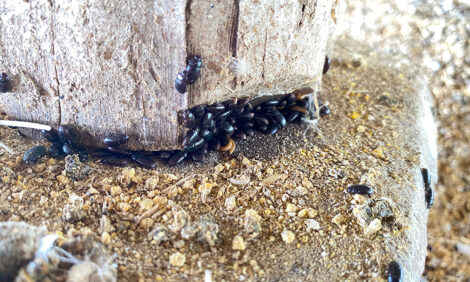



Method of Administration Affects the Ability of Bacteriophage to Prevent Colibacillosis in Day-old Broiler Chickens
Bacteriophages can be effective to control colibacillosis in young chickens but they need to be administered so that high titres are present at the site of the bacterial infection, according to new research from the University of Arkansas.Bacteriophages are viruses that kill bacteria. They are plentiful in nature with no known activity in human or animal cells, making them an attractive alternative to antibiotics, according to W.E. Huff and co-workers at the USDA, Agricultural Research Service's Poultry Science Center at the University of Arkansas.
In their paper published in Poultry Science last month, they explain that the objective of their research was to determine if a coarse or a fine spray of bacteriophage would prevent colibacillosis induced by an intratracheal (IT) challenge with Escherichia coli.
Two studies were conducted with six treatments:
- untreated control
- birds treated with a spray administration of bacteriophage and not challenged
- birds administered bacteriophage IT and not challenged,
- birds not treated and challenged IT with E. coli,
- birds sprayed with bacteriophage and IT challenged with E. coli, and
- birds administered bacteriophage IT and challenged IT with E. coli.
There were three replicate pens of 10 birds per pen, per treatment, and all treatments were administered at one day of age.
Study 1 was concluded when the birds were 19 days of age, and study 2 was concluded when the birds were 21 days of age.
In both studies, neither a coarse nor a fine spray protected the birds from an IT E. coli challenge; however, when bacteriophage was administered IT, there was complete protection.
Huff and co-authors conclude their research demonstrates the necessity for the administration of bacteriophage therapeutics to deliver high bacteriophage titres to the site of a bacterial infection.
Reference
Huff W.E., G.R. Huff, N.C. Rath and A.M. Donoghue. 2013. Method of administration affects the ability of bacteriophage to prevent colibacillosis in 1-day-old broiler chickens. Poult. Sci. 92(4):930-934. doi: 10.3382/ps.2012-02916
Further Reading
You can view the full report (fee payable) by clicking here.
Find out more information colibacillosis in poultry by clicking here.
May 2013











